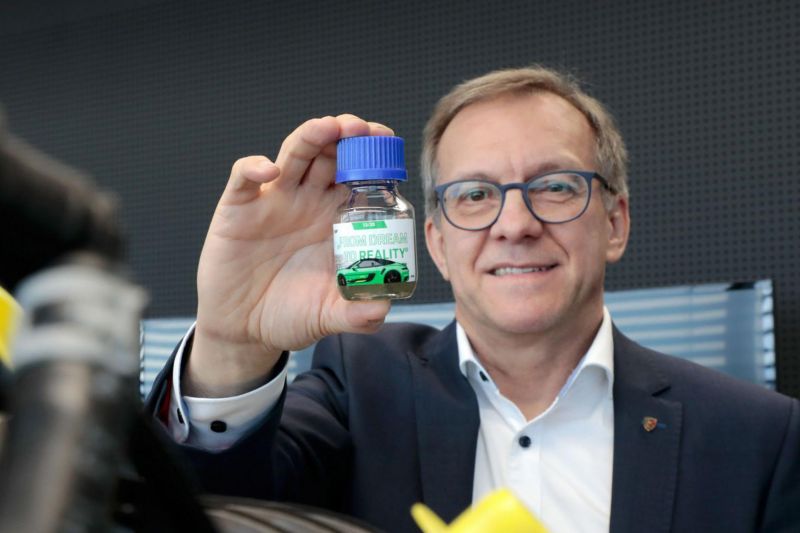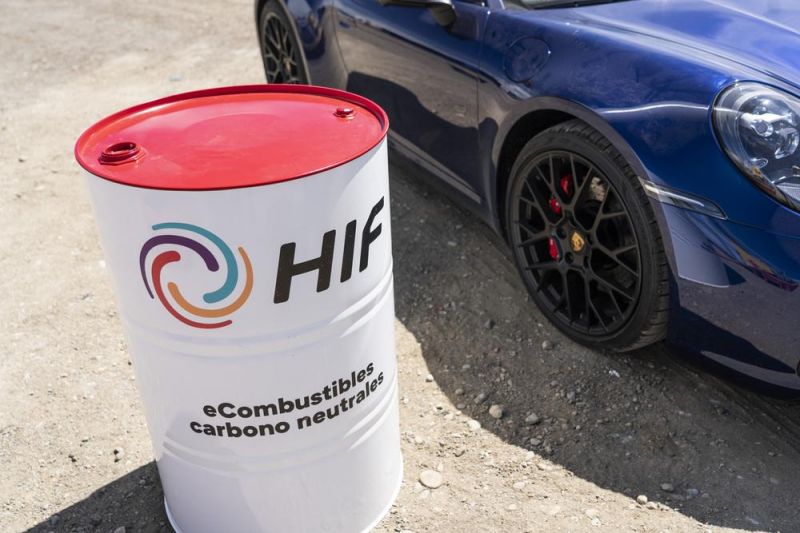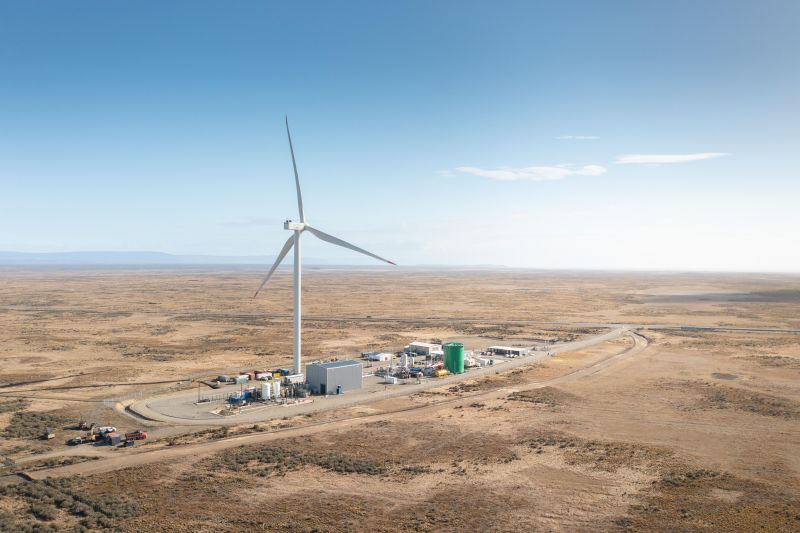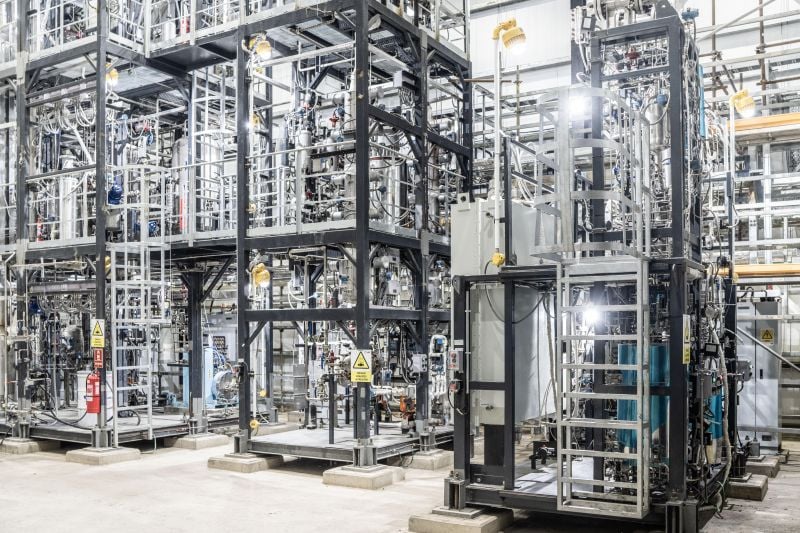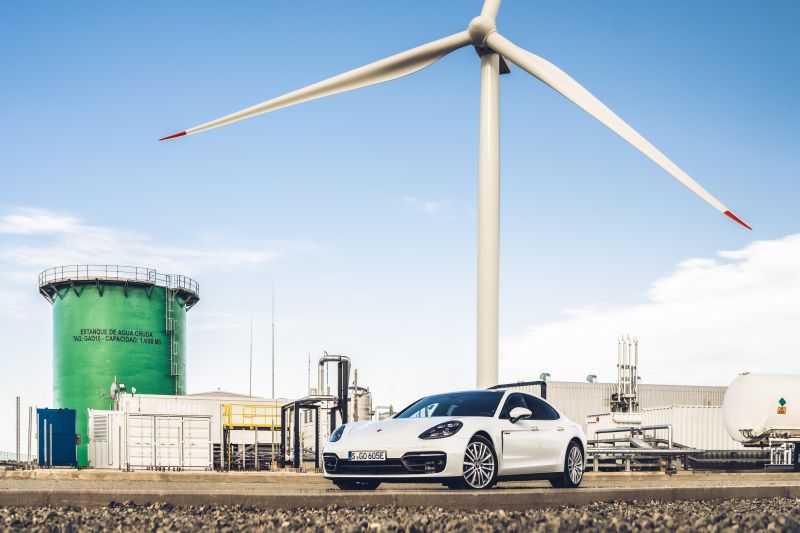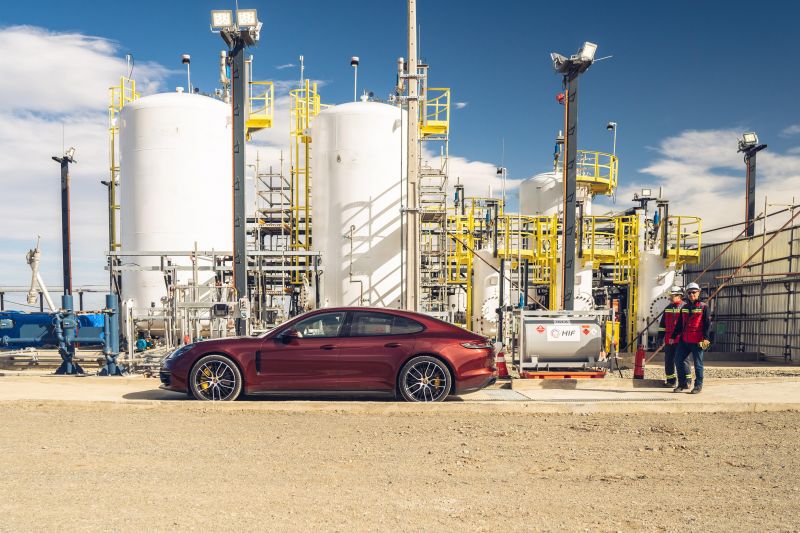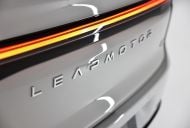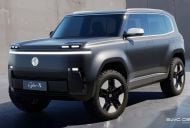Porsche believes it will be eFuels, and not electrification, which will future-proof the world’s automotive landscape.
The company is confident it has found a ‘holy grail’ solution to the switch from fossil fuels to a sustainable plan which is kind to the environment.
It’s not just for cars, either, as eFuels could also work for the petrochemical needs of industry as well as aviation and shipping.
“I am absolutely confident we can save the world,” Dr Karl Dums, senior project lead of eFuels at Porsche, told CarExpert in Germany.
“We need to have another solution. And this is replacing fossil fuel.
“Everyone says we don’t need this because the cars will be electric. This is completely wrong.
“What we need is to make renewable energy available all over the world.”
Officially, Porsche has a twin-edged approach to the future of motoring with a large-scale switch to battery-electric cars in the short term before the eFuels program gets up to speed.
It already has the Taycan electric flagship, has just revealed an electric-only replacement for its best selling Macan, and is working on a luxury SUV flagship with battery power.
“Even though we are on an ambitious pathway to e-mobility, ICE (internal combustion engine) cars will remain on our streets for a very long time,” said Dr Dums.
“eFuels, that fulfil the current specification that you can find at the gas station, can be used in every car and brand. Therefore eFuels could be an additional option to help to de-fossilise the existing car fleet.
“From our point of view, it’s not ‘either or’. The transformation to e-mobility is on the way, but we feel that it is not fast enough.
“Therefore we see eFuels as a potentially nearly carbon-neutral addition, especially in regions where the transformation takes more time or for markets which will not transform completely.”
On the eFuels front, Porsche has spent more than $150 million and has partnered with an American company, HIF Global, and taken a $100 million stake. They have built an operational pilot plant in Chile which began producing eFuel last year.
Australia is also on the program, with a plant in Tasmania powered by wind turbines to produce 100 million litres a year from 2028 for local consumption and through Asia.
Eventually the large-scale production of eFuels will include another plant in Uruguay and a headline operation in Texas in the USA.
“At the moment HIF USA is doing a so-called FEED-study to set up the technical concept for a first industrial eFuels-plant in Matagorda, Texas. The commercial production could start in 2027,” said Dr Dums.
“We need these first plants to prove the technology. Then this energy can get affordable. Not cheap, but affordable.
“The highest priority is not to produce as much eFuel as possible. More important for us is to show that the production technology is available and that the fuel can be used in existing cars without any change of hardware or software.
“From my point of view, it must change the world. Otherwise we will not reach our climate target.”
Dr Dums said the basic science behind the creation of eFuels is fairly simple, but it takes a lot of energy and some ’special sauce’ to produce a viable methanol-style replacement for petrochemical.
Porsche tested more than 80 different chemical compositions during its research work. The energy needs were key in the choice of locations for the HIF plants as they need access to large supplies of cheap renewable energy.
“Our definition (of eFuel) is it comes out of water, renewal energy and carbon-dioxide. This is fascinating,” he said.
“You get fuel out of this nothing. And it’s really great. You make gasoline out of eMethanol.
“We are looking into the methanol pathway. It’s like crude oil. You can use it for chemicals, for plastics, gasoline, kerosene.
“You can do everything you can do today with oil. I’m absolutely convinced.”
Dr Dums is understandably vague about the likely price of eFuel gasoline, although there is one European company – P1 in Germany – already producing a bio-fuel racing gasoline for about $12 a litre. It’s used in the World Rally Championship and bio-fuel is also on the agenda for the hybrid racers in Formula One from 2026.
“In the beginning [eFuel] will be expensive. Especially if you only compare to fossil fuel,” Dr Dums said.
“It’s so popular because it’s the cheapest energy you can have. But what you don’t see are the impact costs of burning fossil fuel, also in the future.”
Porsche intends to focus on motorsport in the short term, using its eFuel from Chile for the Porsche Supercup championship for racing 911s in Europe this year.
“We believe that motorsports is, as always, the best test bench. We can prove that even our most performance engines are able to run with eFuels without any problems,” said Dr Dums.
“We try to get the most public relations value out of every litre.”
Dr Dums admits that running vehicles on eFuel will still produce some small localised emissions from the engine, but this is more than offset by the emission-free carbon-capture process used to create the fuel.
“Renewable energy is abundant. We get so much we cannot use all of it,” he said.
“In theory, the amount of eFuel is not limited. You need lots of money for investment, but in the end it would not be limited.
“Remember, there are more than 1.3 billion cars with combustion engine on this planet and transformation to e-mobility will take time. So we need a solution for the existing car fleet and ICE running with eFuel can become part of the solution instead being the problem.”





